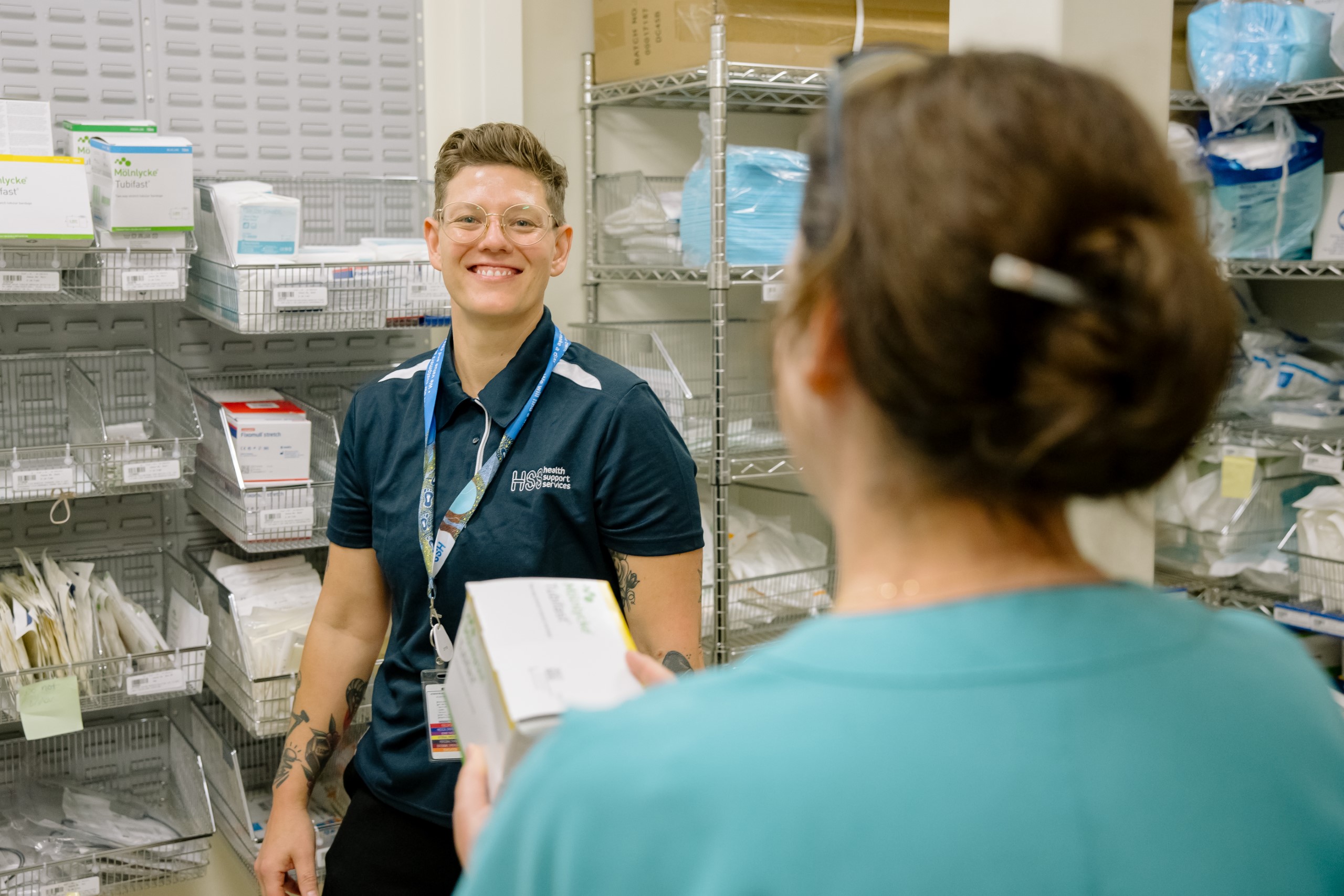Sustainability win: Hospital medicine cups replaced with biodegradable alternative

The Procurement and Supply team have reached an exciting turning point for sustainability in our hospitals – we are close to phasing out plastic medicine cups entirely.
Replacing plastic medicine cups across the entire metropolitan WA public health system has significant environmental impact. Public hospitals in Perth go through approximately 7 million medicine cups annually, which equates to 6,000kg.
Initiated by part of the Sustainable Health Review which includes a commitment to waste reduction under Recommendation 5, plastic medicine cups were identified as a product able to be replaced with a biodegradable alternative. Meeting a set of criteria, the new products would be phased in as the old stock was gradually used up – ensuring no wastage.
The process of replacing stock with biodegradable or more sustainable alternatives begins with the Category Management team, who when negotiating a product contract, work closely with clinicians and end users to identify what products can be replaced with something friendlier to the earth, while maintaining the efficiency and efficacy of the original product.
The Warehouse and Logistics team work closely with our customers when introducing a product to ensure there is no impact to patient care.
Harsha Ranasinghe, a/Director of Inventory and Customer Supply said hospitals are open to sustainability options. “It is a target for them as well, so we work proactively together,” he said.
Completely transitioning the metro hospitals to biodegradable cups was slower than anticipated, due to a positive reason – some hospitals were requesting the new biodegradable cups, meaning it took longer to use up the old plastic stock on hand (and limiting wastage was a priority).
Replacing medicine cups is an exciting step forward in reducing the environmental impact of our hospitals, but it is not the only item the team are working to phase out.
More environmentally friendly alternatives have been identified for kidney dishes, and the HSS Warehouse inventory team are currently phasing these out – it may take some time due to the need to use the current stock on hand.
Hospital items that have already been fully transitioned to biodegradable products include bedpans (appx. 130,000 of these are used annually) and urinals (appx. 520,000 used annually).
Harsha said sustainability is the goal, but it is not without challenges. “Sometimes it's challenging to find supplies to meet the solutions we’ve identified, at the volume we require to support our hospitals,” he said.
The State Government has committed to addressing risks that climate change poses and seizing opportunities for sustainability, transitioning to a low-carbon economy by 2050.

